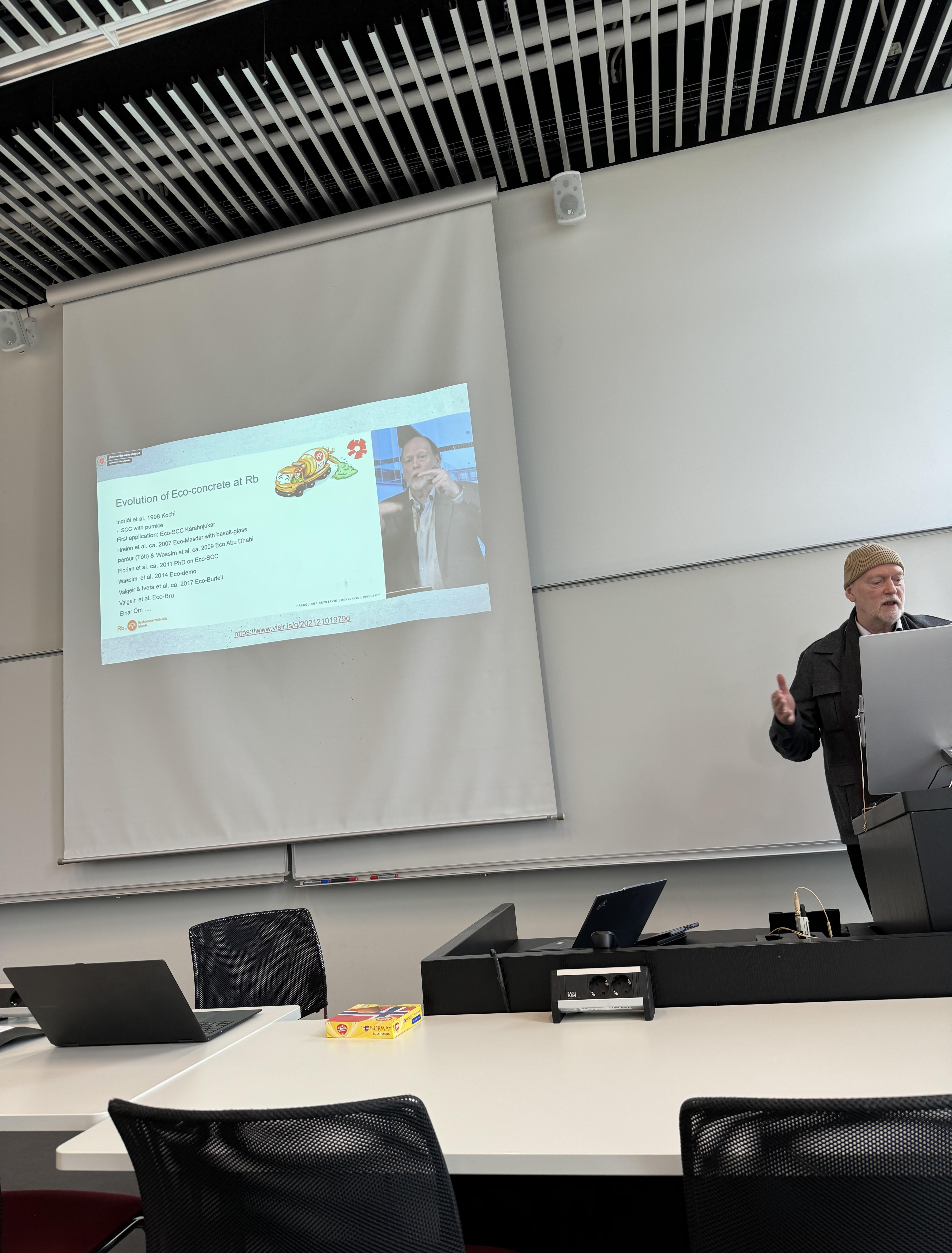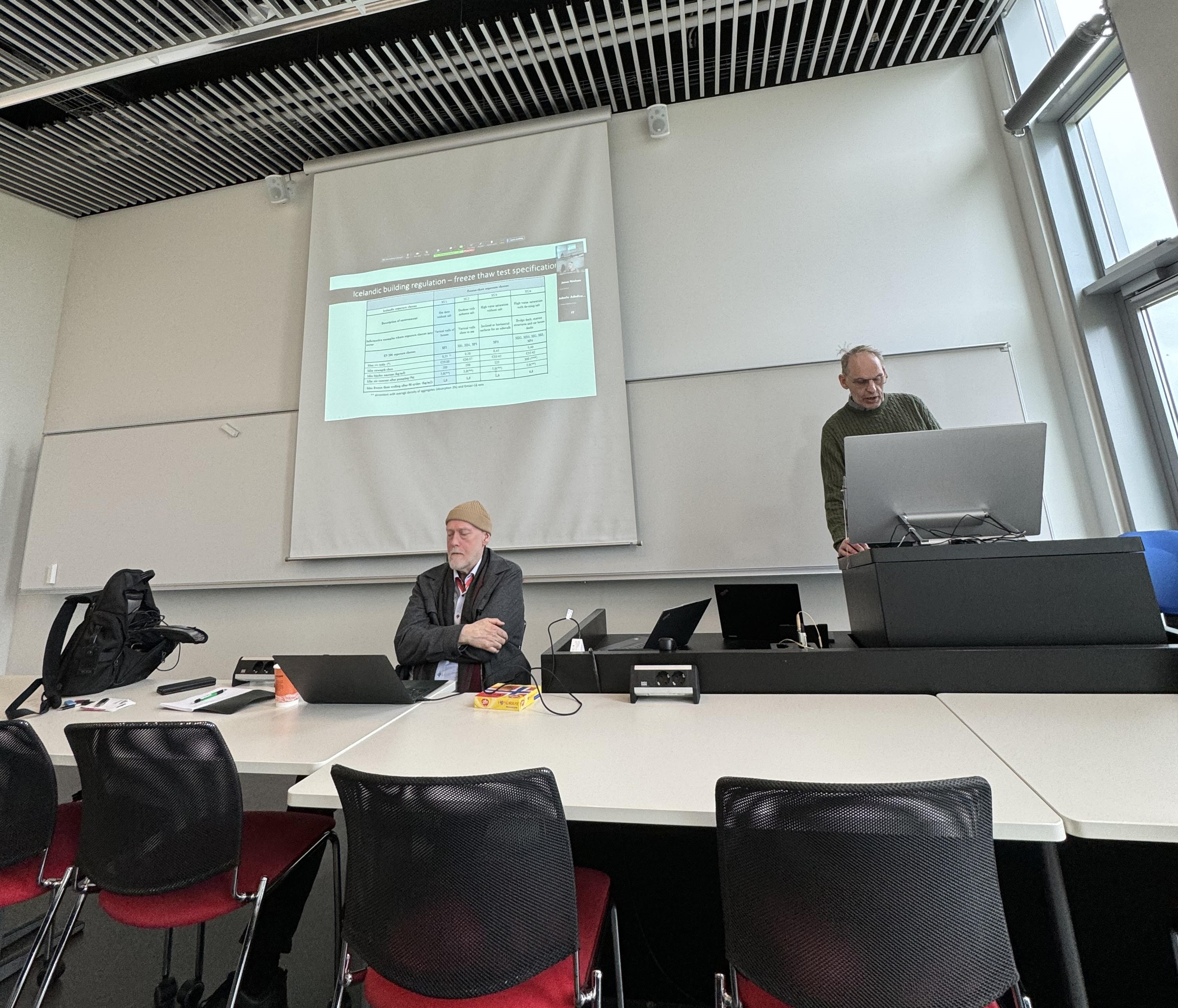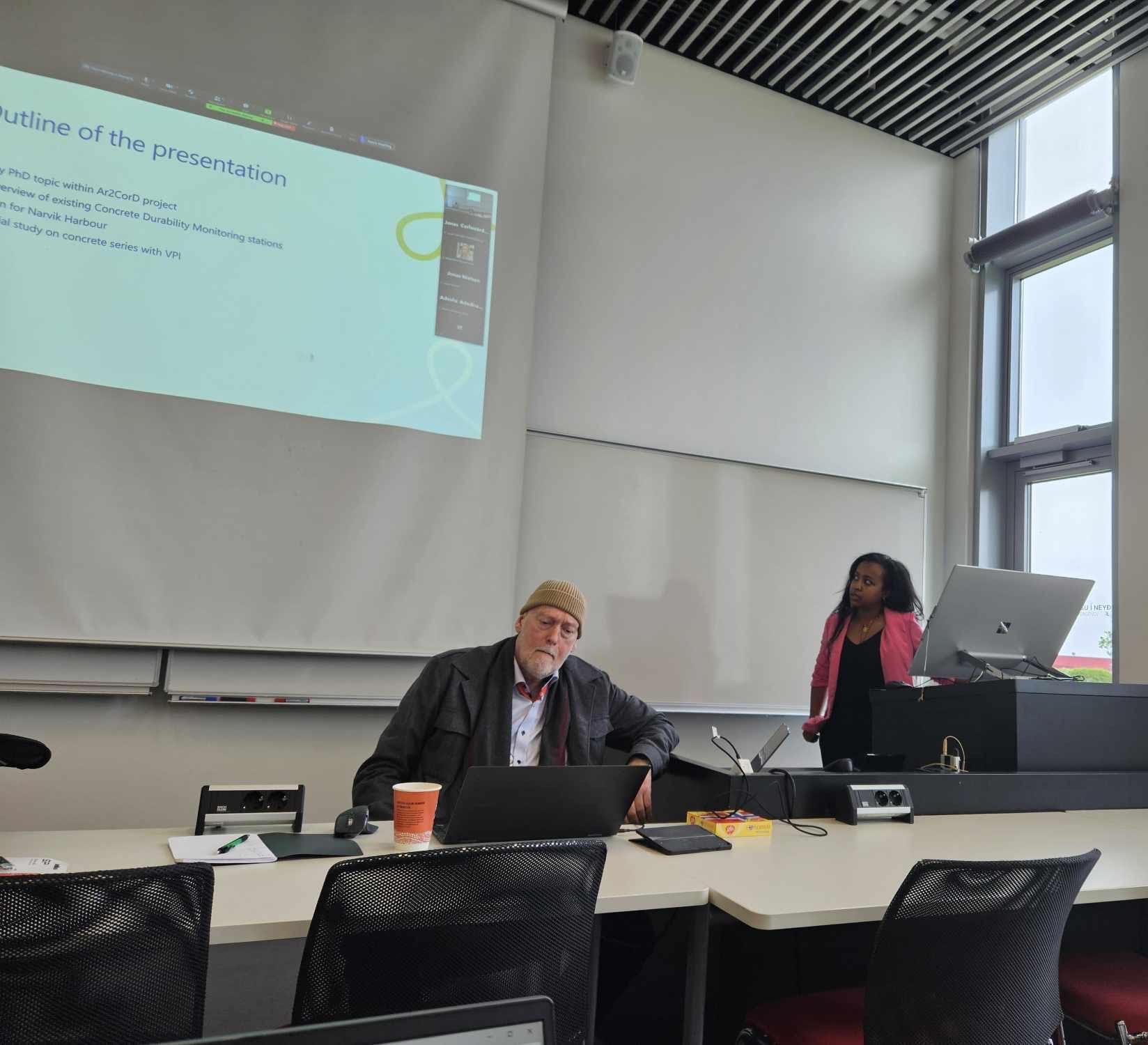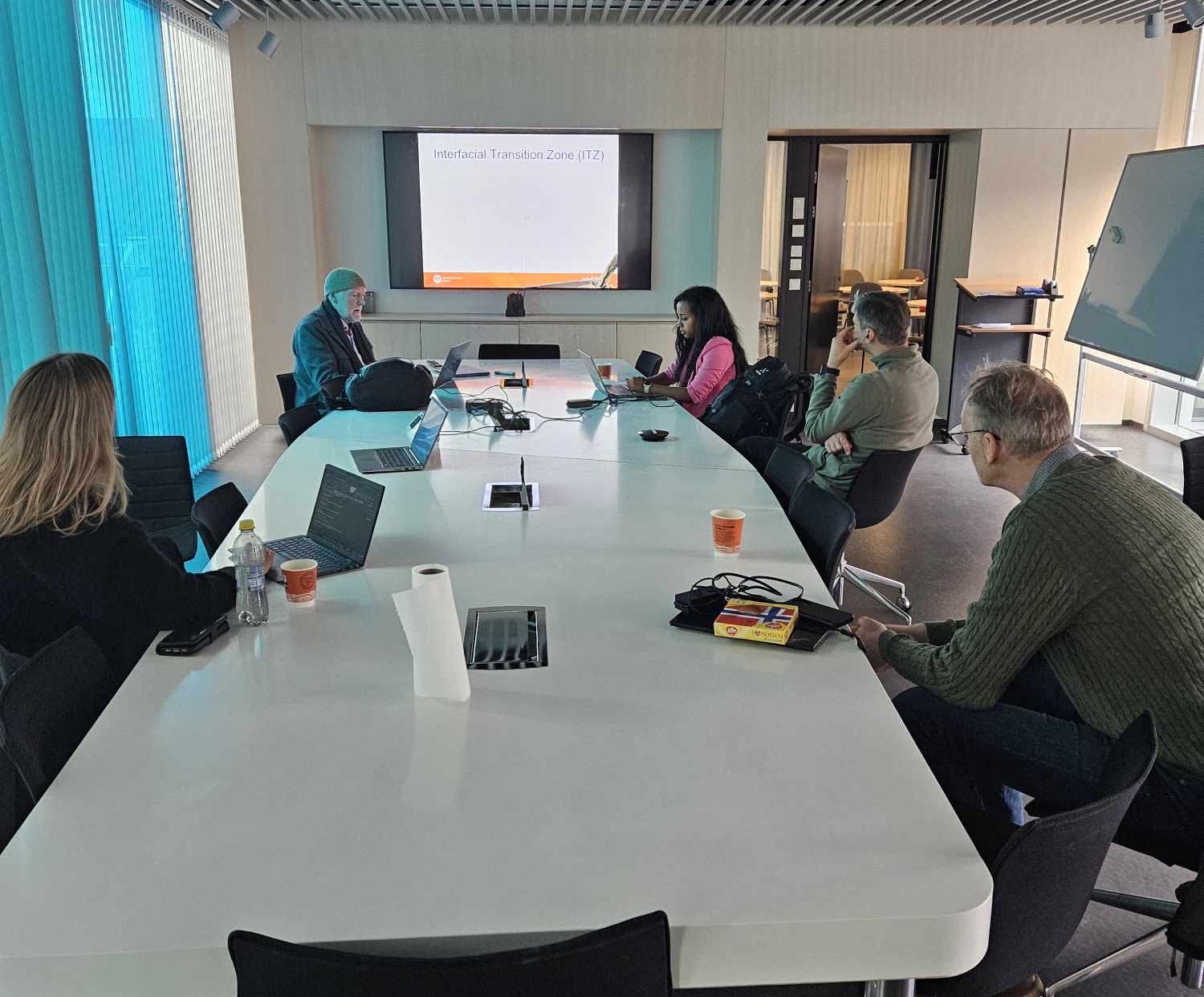Successful Ar2CorD Annual Seminar Held at Reykjavik University, Iceland
We are delighted to share the highlights of the Ar2CorD, Low Carbon Concrete for Arctic Climate with Excellent Sustaniability and Duraplity annual seminar which is the part of the Ar2CorD project that took place at Reykjavik University, Iceland, on May 30, 2024.
This year annual Ar2CorD seminar was organized and hosted by Professor Olafur Wallevik from Reykjavik University on 30th of May 2024. On the evening of May 29, 2024, participants who traveled to Iceland to participate the seminar in person gathered for a seminar dinner, creating a relaxed atmosphere for networking and discussing the seminar agenda. This pre-seminar event set a positive tone for the following day’s seminar.
On May 30, 2024, the seminar started at 10:00, Rejkavik time, featured with a series of enlightening presentations by the project partners followed by a discussion. The event was opened with a welcoming speech by Reykjavik University representative, Professor Olafur, who inspired the attendees with his words. The seminar continued with presentations from various experts. For those who could not attend the seminar in person, the seminar was streamed live, ensuring that everyone could benefit from the valuable content shared. The clickable screen for the live stream worked perfectly, allowing online participants to engage with the presentations in real-time.
The presenters were Adeolu Adeiran from University of Oulu Finland. He presented online on the potential alternatives for local binder and aggregate materials. He discussed alternative aggregates and SCMs available in the nordics and his main findings. Ingrid Jondahl from Heidelberg Materials Sement Norge, presentsed in person on volcanic pozzolan iceland in low carbon concrete. She presented the ongoing projects with volcanic pozzolan iceland (VPI) and results form mortar testing with VPI. Jonas Nielsen from Permagreen Grønland A/S presented online on a traditional mixing and regulations in Greenland. He discussed the construction industry and concrete production in Greenland. Professor Olafur Wallevik from Reykjavik University presented in person on frost resistance of low carbon concrete. He discussed evolution of eco-concrete at Rb and frost resistance of low carbon concrete. Magdalena Rajczakoska from Luleå University of Technology, presented online on how can enhance accelerated freeze and thaw testing for low-carbon concrete. She presented freeze-thaw testing methods, different curing conditions, experimental procedures and data analysis. Einar Einarsson from BM Valla ehf,IS presented in person on freeze-thaw resistance of low carbon concrete and effect of carbonation and air content. He discussed concrete in Greenland, Icelanding building regulations on freeze-thaw test specifications, Effect of carbonation on freeze thaw resistance and entrained air and also the continuing work in freeze thaw and low carbon concrete. Jonas Carlsward from Heidelberg Materials Sweden AB, SE who presented online on Freeze thaw testing of low carbon concrete according to SS137003. He discussed low carbon concrete limitations, freeze-thaw resistance of low carbon concrete and freeze-thaw test methods according to SS 137003. Rekik Derso from UiT The Arctic University of Norway presented in person on Long-term durability monitoring station establishment at Narvik harbour. She discussed overview and historical development of existing Concrete Durability Monitoring stations, plan for narvik harbour and intial study on cocncrete series with volcanic pozzolan iceland (VPI).
Here are some photos from the seminar.
 |
 |
 |
 |
| After the seminar was over, there was a discussion on how the seminar went and what things to do in the remaining project years. There was also a discussion on the biggest challenges in making lower carbon footprint concrete in the north/arctic exposed to frost, and how to insure its frost resistance. |  |
We extend our heartfelt thanks to everyone who participated in the Ar2CorD annual seminar, both in person and online.